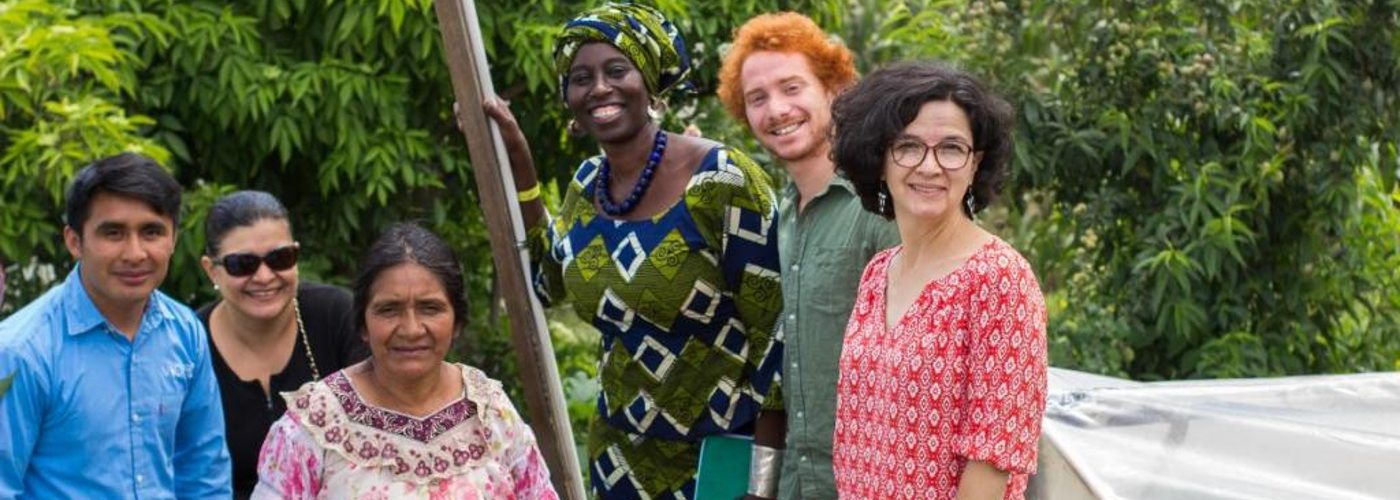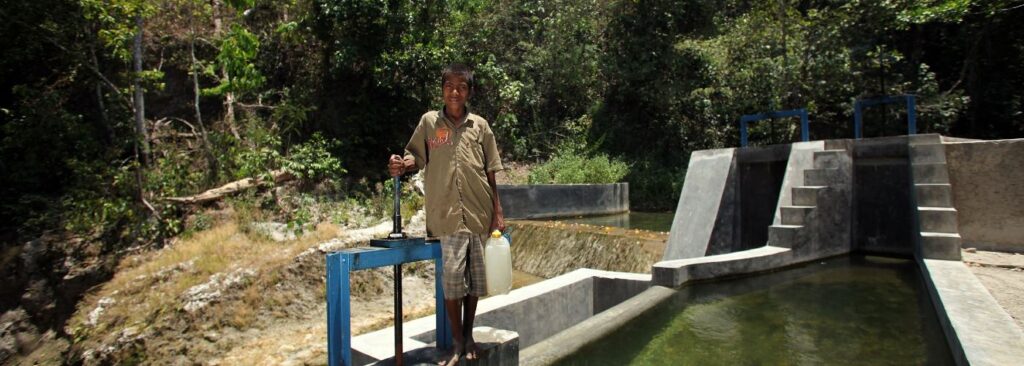Guest blog by Danielle Huffaker
A small team of Hivos team members and representatives from our host partner in Guatemala, Alterna Impact, went on a learning adventure on July 28 to meet with Guatemalan women entrepreneurs and learn about their needs and experiences around renewable energy. In our team were Raquel Chacón and Kattia Quirós from Hivos’ Costa Rica office and Sheila Oparaocha, who leads ENERGIA and its network of 4,000 (and growing) women entrepreneurs in Africa and Asia, where they work to expand renewable energy and improve energy productivity.
As we explored the potential to replicate ENERGIA’s program in Central America, we wanted to deepen our understanding of the experiences of women entrepreneurs in Guatemala as they intersect with energy use. We made three field visits to cover a breadth of contexts and situations women entrepreneurs face as they seek to create sustainable incomes and achieve the right energy solutions for their businesses.
Doña Carmen & Viogaz
Doña Carmen is a Quiché Maya woman who lives in a rural community near the city of Quetzaltenango. Carmen is a single mother and lives off making productive use of her land. She raises chickens, pigs, cows, ducks, and other animals for sale and for family consumption and grows corn and vegetables primarily to help meet her family’s alimentary needs.
Through the social enterprise Viogaz, Carmen purchased a biodigester at a highly subsidized rate. The apparatus converts the waste produced by her animals into energy for cooking and organic fertilizer for her fields. After two years, she is maintaining her biodigester and happily making use of its byproducts, while the amount she spends on firewood has decreased by up to 90%!
While biodigesters provide an efficient way of converting waste into household needs (fuel and fertilizer), their high installation cost makes spreading the household use of biodigesters in Guatemala a continued challenge.
Raquel Chacón observed that Carmen’s case represents at least two things done well by Viogaz. On the one hand, it was clear that they had provided the ongoing technical assistance and follow-up to make sure the biodigester was functioning and that Carmen use it properly for a sustained period of time. However, Viogaz had gone beyond technical support to address human realities embedded in the culture in which they work. Namely, they have recognized the Guatemalan woman’s need for a cookstove that provides what she is accustomed to – a large flame that replicates cooking over an open fire. In addition to helping set up the biodigester, they have worked with Carmen to develop a stove and gas tank setup that would meet her needs.
Juana Xoch of Soluciones Comunitarias and Sanik
Juana Xoch is from El Triunfo, a remote community near the Interamerican highway. Juana, a Kachiquel woman whose father was among the “disappeared” during the Guatemalan civil war, recounted her moving story of resilience as she has confronted a lifelong of barriers due to extreme poverty and social exclusion. Although she did not complete her primary school education, she learned to read as a young adult and proved her entrepreneurial capabilities as a successful sales agent for Soluciones Comunitarias (SolCom), a Guatemalan social business that provides access to beneficial technologies and services that can improve lives in remote areas. Through SolCom, Juana sold solar lamps, improved cookstoves, water filters, and eyeglasses to people in rural communities. Having proven her initiative, she was promoted to SolCom’s Regional Coordinator in the Sololá department of Guatemala.
Motivated to help the women in her community send their children to school, Juana also formed a woman’s group called Sanik to produce and sell hand woven textiles, macramé bracelets, and beaded accessories.
Our team saw that Juana reflected many of the qualities that ENERGIA has defined for selecting women with the greatest potential as entrepreneurs. This also includes what ENERGIA has identified as the need for women like Juana to have access to business and empowerment trainings to catalyze success. We also noted some things that make the Guatemalan context distinct from the places where ENERGIA works, namely social barriers faced by indigenous Maya women resulting in economic inclusion, for example, and the scars left on communities and families by the 36 year-long civil war that ended in 1996.
Orquídeas Nimachay
Our last visit was to a community women’s group in San Bartolomé Milpas Altas that is working to rescue and cultivate orchid species that are endemic to Guatemala and at risk of extinction. With the support of Sotz’il, an indigenous organization, the women of Nimachay have established a laboratory to germinate the orchids and a three-year plan to begin commercializing the flowers.
To sustain their efforts financially, they have formed a parallel cooperative that uses worm composters to transform waste from their local market to organic compost that they sell locally.
The group dreams of developing solid financial underpinnings, and our team emphasized the importance of performing local market assessments and developing a business plan to help achieve this. We referred them to Alterna Impact, which provides accompaniment and mentorship for Guatemalan social businesses.
Running their laboratory also generates high monthly electric costs, and the group had become interested in developing a solar energy system for the lab. Their highest cost is heating the laboratory to the orchid’s ideal temperature during the cold season, and Sheila Oparaocha suggested that a combination of gas heating and good insulation may be a more efficient solution to this energy need than solar technology. On the other hand, solar panels may be a good solution for the lighting in the lab. Oparaocha advised on the importance of a full energy audit to understand the best solution or mix of solutions for their specific needs.
Understanding impact in Guatemala
Our day provided a view into a mix of contexts for women entrepreneurs in Guatemala who work both in rural and urban areas, selling renewable energy products and seeking productive energy uses to run their businesses, working in families, in groups, and as part of an organization. We were assured that there is both great need and great opportunity for a program like ENERGIA to support women entrepreneurs in Guatemala and Central America and so will continue learning and developing an approach and partnerships in the region. Mostly, we aspire to continue connecting with inspiring, ambitious women who are organizing to create social and environmental value in their communities. They motivate us to continue to deepen, strengthen, and scale our programs geared towards the nexus of gender and renewable energy.


